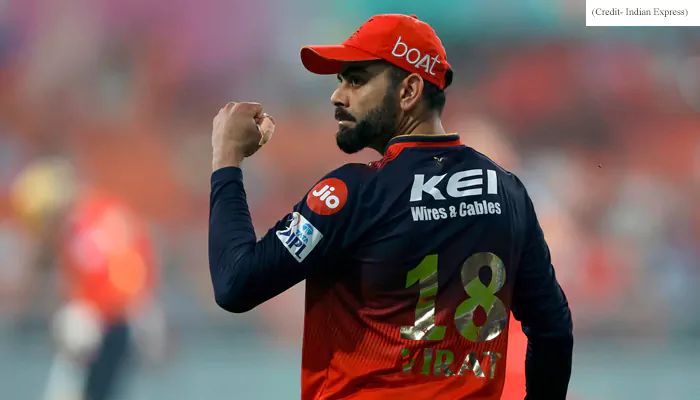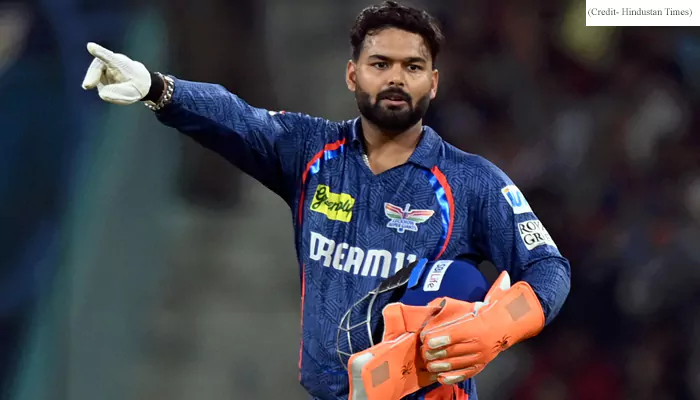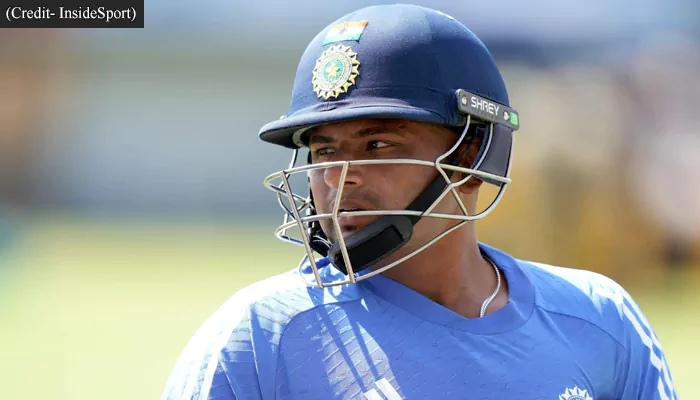When Legends Bow Out: Ashwin’s Farewell Mirrors Dhoni’s Sudden Goodbye
- Rohit Chatterjee
- 11 months ago
- 4 minutes read

Credit: Loksatta
Both left when the world least expected it, creating space for the next generation
Ravichandran Ashwin's departure from international cricket came at a painful time in Indian cricket. Ashwin's goodbye came unexpectedly at the third Border-Gavaskar Trophy Test in Brisbane, similar to MS Dhoni's sudden withdrawal from Test cricket at the Melbourne Cricket Ground (MCG) a decade ago. While their playing styles differed, their retirements had remarkable time, effect, and intent parallels.
Departing on their own terms
MS Dhoni retired from Test cricket in 2014, neither after a great performance nor a significant achievement. He quietly departed in the middle of the Border-Gavaskar Trophy following a drawn Test against Australia. There was no spectacular goodbye; his declaration came via a BCCI news release. Ravichandran Ashwin followed a similar track in 2024. The series was far from finished; the Gabba Test resulted in a draw, and his retirement was a surprise announcement in the post-match press meet.
Both cricketers chose to retire quietly, making way for the next generation. Dhoni handed up the captaincy to Virat Kohli, and Ashwin's departure provided an opportunity for rising spinners like Washington Sundar to establish their claim.
Timing: A masterstroke or a mystery?
Why quit when you're still at your peak? Fans and commentators wrestled with this question following both announcements. Despite criticism for India's foreign Test losses, Dhoni remains India's most successful Test captain, guiding the team to the top spot. Similarly, Ashwin remained India's leading spinner, with 537 Test wickets and a dangerous presence at home.
But here lays their brilliance: they recognised the greater picture. For Dhoni, it was about concentrating on limited-overs cricket, where his leadership and finishing skills were still needed. For Ashwin, it was about ensuring that India's spin department passes seamlessly, leaving a legacy and a challenge for future generations.
Against Australia: A common thread
Australia, the common thread in their retirement stories, adds a depth of drama. Dhoni's Test career concluded against Australia, against whom he scored his best Test score of 224. Ashwin, too, opted to leave while playing the Australians, a side he tortured on several occasions, most notably in the 2021 Gabba Test, when he helped India break the fortress.
It's poetic that both superstars concluded their Test careers against a team that brought out the best in them.
🇮🇳 Ravichandran #Ashwin retires from International Cricket!
— The Analyzer (News Updates🗞️) (@Indian_Analyzer) December 18, 2024
Test Career Stats:
🏏 Matches: 106
☝️ Wickets: 537 (India’s 2nd highest)
🏆 37 Five-Wicket Hauls | 8 Ten-Wicket Matches
💯 6 Test Centuries
An all time Great. Good Bye, Ash!pic.twitter.com/PwEiMOxHP6
Vacating big boots
The timing of their exits was not only about them but also about others waiting in the wings. Dhoni's departure handed over the reins to Kohli, who went on to alter India's aggressive Test cricket philosophy. With Ashwin's retirement, players such as Axar Patel, Washington Sundar and Kuldeep Yadav will have the opportunity to carry on India's spin heritage.
What stands out is their selflessness. Neither waited for a drop in performance nor a push from selectors. They opted to depart while their contributions were still evident, ensuring their absence would be noticed but not hated.
Legacy beyond numbers
Dhoni's 90 Tests, 4876 runs, and 294 dismissals are merely part of his legacy. His Test career was marked by his calm demeanour, tactical acumen, and ability to set an example. Ashwin's 106 Tests, 537 wickets, and 3503 runs paint a similar story—of a man who could turn games around with the ball while saving India with the bat.
Their biggest success, however, was knowing when to let go, ensuring that Indian cricket continues to progress.
In 2014 Australian tour - Dhoni retired.
— Johns. (@CricCrazyJohns) December 18, 2024
In 2024 Australian tour - Ashwin retired. pic.twitter.com/riat5OyjQk
Two goodbyes, one lesson
Ashwin and Dhoni's retirements were more than simply the conclusion of one chapter; they were also the beginning of another. They remind us that legends understand how to play the game and when to quit it.
As Indian cricket moves on, it will carry on the essential lesson that these two greats left behind: always think beyond yourself since the team is larger than the individual.












